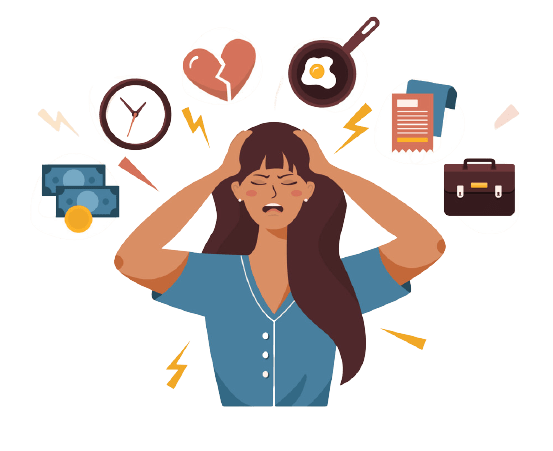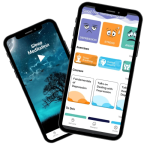Online Cognitive Analytic Therapy | Best Therapist For Cognitive Analysis
- Setup a free & confidential chat on your cognitive analysis
- Unlimited help through our self-care app
- Live Video or Chat sessions with top cognitive analytic therapists
Begin Therapy
Consult online with best Therapist
Get The Best Help For Cognitive Analysis
TherapyMantra is here to help you on your path to recovery from depression. We match you with the best cognitive analytic therapists available 24/7 via video call or messaging.
Match with cognitive analytic therapists
We assign the best counsellors experienced in depression issues based on your needs.
Affordable and Effective
Our online sessions are 90% less expensive than in-person therapy, available 24/7.
Self-Care
We offer ongoing cognitive analysis support through self-care tools, depression help videos, chat groups, meditations, breathing exercises, and other resources.

Wondering if it’s just a phase or something more? Take our Free online cognitive analytic therapy to find out?
How it works?
You are matched with a Cognitive Analytic Therapist based on your needs and preferences. You get a secure “therapy room” where you can communicate with your counsellor via chat or phone. You can write or talk about your issues & ask questions to deal with depression.

Register for Cognitive Analytic Therapy
Simply complete a 5-minute online form to tell us about your Depression issues

Consult with your Cognitive Analytic Therapist
We connect you with Cognitive Analytic Therapists who are available 24/7 based on your preferences and needs.

Connect to Our App
Apart from Video / chat sessions, our app offers self-care tools, videos and meditations to help you deal with your depression.
Best Cognitive Analytic Therapists
Positive conversations, exercises, and meditations are used by TherapyMantra psychologists to help you deal with depression. Our Cognitive Analytic Therapists outperform traditional counselling as you get matched from a pool of 500+ Cognitive Analytic Therapists, who offer 24/7 unrestricted private chat.








What is Cognitive Analytic Therapy?
CAT is a talking therapy that can be used to help people with depression, anxiety, or phobias. The person works with the therapist to examine their thoughts and feelings about themselves, other people, and their future. This helps them find out what keeps their problem going and how they might begin to overcome it. They then develop new ways of thinking and behaving that should help them feel better.
How does it work?
The therapy helps people to understand how their thoughts, feelings, and behaviors interact with each other. This can help them to see how their problem might have started and how it might continue. It can also help them to develop new ways of thinking and behaving that should help them feel better.
CAT has been shown to be an effective treatment for a range of problems, including depression, anxiety, and phobias. It can also help people to understand themselves better and to develop better-coping skills.
The length of CAT therapy will vary depending on the individual’s needs. Some people may only need a few sessions, while others may need more treatment.
What are the CAT sessions like?
The CAT therapist works with the person to discuss their thoughts and feelings about themselves, other people, and the future. They develop a narrative of how their current problems developed and what keeps them going.
This helps the person understand how their problem might have started and why it continues. The work in sessions often enables people to try out different ways of behaving and thinking. This can help them to see how they could start to feel better.
The therapist will also ask the person to keep a diary between sessions, in which they record their thoughts and experiences. This helps the therapist to check on how the person is doing outside of therapy and whether any changes are happening.
What can it help with?
CAT has been shown to be an effective treatment for a range of conditions, including:
- depression and anxiety
- panic attacks and phobias
People with depression may become very negative in the way they think. They often think about themselves, other people, and their future in unhelpful ways. This can affect how they feel and what they do.
CAT helps people to understand how their thinking affects the way they feel and what they do. This can help them develop better ways of coping with their problems.
How is CAT effective?
CAT attacks the problem from different angles. It helps people to:
understand how their thoughts can affect their feelings and behavior identify new ways of thinking that could help build a more positive outlook for the future learn new coping skills so they can manage their problems more effectively
This means CAT should be an effective treatment for depression, anxiety, and phobias.
How to find a Cognitive Analytic Therapist?
TherapyMantra can help you find a cognitive analytic therapist near you. We have over 500+ therapists listed on our therapist directory. You can follow the following steps to find a good cognitive analytic therapist:
- First, ask your family doctor or anyone else you are seeing for a referral for cognitive analytic therapy.
- The next thing you’ll want to do is ask your friends and loved ones for referrals.
- The next thing you’ll want to do is look online. There are many websites that help people find therapists in their area who can treat things like depression.
10,000+ Happy & Healed patients

“This book was a fascinating and well-written introduction to Cognitive Analytic Therapy; it was extremely well sectioned and laid out, with excellent examples throughout. I would recommend this to any therapist or trainee therapist who is interested in how past experiences, early behavioural patterns, and relationship dynamics may be replaying in their clients’ current lives. It piqued my interest in learning more about CAT and how it might be useful or appropriate at times in certain client work.”
Kevin,
1 year on TherapyMantra
FAQs
The therapy works by identifying any learned behaviours or beliefs from your past and determining whether they are contributing to your current problems. Cognitive analytic therapy seeks to show you how to change such beliefs and to assist you in focusing on ways to make better choices in the future.
Analytical psychotherapy is a type of therapy that focuses on the subject’s internal conflicts. This method is based on verbal interpretation of the patient’s words and seeks to clarify his behaviours and affects in order to resolve the internal conflicts he is experiencing.
Cognitive Analytic therapy (CAT) is a brief focal therapy that is influenced by cognitive therapy, psychodynamic psychotherapy, and recent advances in cognitive psychology. It has a well-developed self-contained methodology that is supported by a fully structured theory of mental functioning and therapeutic interventions.
CAT is a type of one-on-one psychotherapy that typically lasts 8 to 24 sessions.
A CAT therapy course is usually 16-24 sessions long – this is discussed and agreed upon with the therapist at the start of therapy. Each weekly session lasts between 50 and 60 minutes. Following the conclusion of regular therapy, one to five follow-up sessions are provided.
There are many different types of therapeutic groups, but most therapy groups fall into one of two categories. Psychoeducational group therapy and process-oriented group therapy are two of these approaches.


